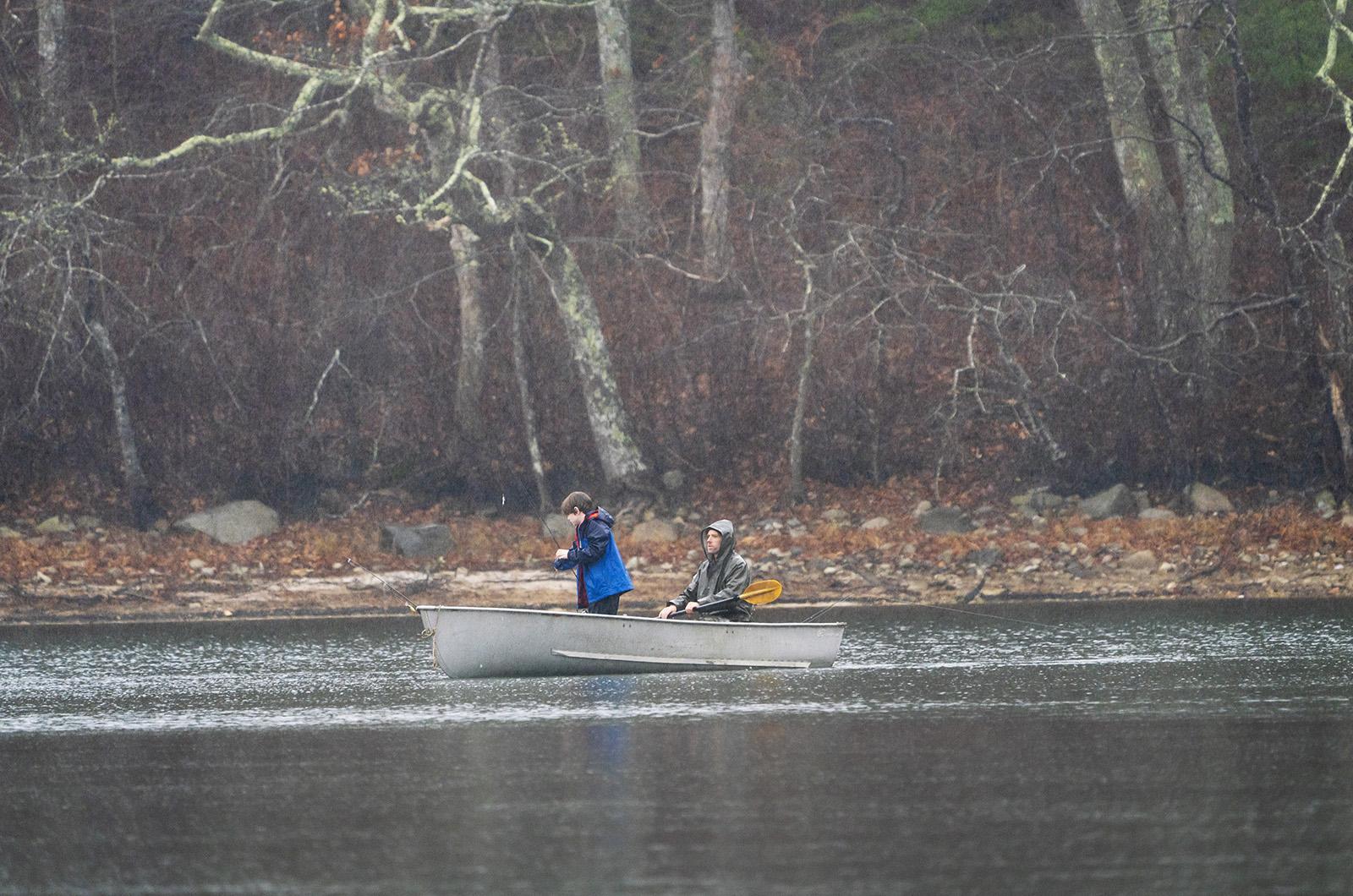From the Dec. 29, 1942 edition of the Vineyard Gazette:
This has been a typical week of winter, such as the Vineyard has seen again and again through the centuries. A little rain, a little wind, a brief cold snap and a flurry of snow. Fields crusted with frozen soil, and all ordinary pursuits dropping into the routine that follows Christmas.
Yet this week, quiet though it was, saw no cessation of the activities of the Island population. In shops, on the farms, on various out of door jobs where men were employed, the work went on, uninterrupted, and everyone took this as a matter of course. All as it should be, notwithstanding the fact that there are many men who can recall different days and different practices; for times and customs have changed, changed mightily, in the last half century! Especially winter customs.
The fields, the streets and the shores of fifty years ago, during such a week as this, presented a bleak and wholly deserted appearance except on rare and unusual occasions. The waters were vacant, save for coastwise craft that sought shelter from storms or threats of storm, and their presence added a touch of life to an otherwise barren scene.
For the fishing boats, large and small, were hauled high on the beaches covered and secured against the weather, and looking as forlorn as anything on earth, for there is nothing so woebegone in appearance as a boat laid up for the winter, in the open.
Only if a wreck occurred on the shore was this scene varied. At all other times there was no other life save the running sand-peeps and occasional swooping winter gulls.
The highways were almost deserted. The occasional cart that rattled over the frozen ruts was likely bound for the woodlot where the distant “tock-tock!” of the axe might have been heard through the stillness on days when the spirit moved the chopper. Oh, there were a few peculiar people who chopped wood all winter, stacking up cordwood for sale in warm weather or for their own use. But they were in the minority. A very few days’ work was sufficient to supply the average family with firewood for a season.
In the villages there might be seen an occasional wood-sawer in a back yard, industriously swaying at the buck-saw, or perhaps he would be splitting wood. An occasional clam-digger passed one way or another, burdened with his bucket, sack and clam rake, or, if the ice was heavy enough, perhaps with an eel spear and axe.
But the village, the community life, was in the stores in every town. Behind the stove or around it sat men of all ages, and the contrast between those men and their present-day descendants is marked indeed.
Somehow they all appeared old 50 years ago. Even the mustached young man of 25, dressed in his sheepskin coat, seemed much older than his son of today, at the same age.
They congregated in the grocery stores, lounging beneath the bunches of bananas that hung ripening from the ceiling. They sat in rows, in the hardware and newspaper stores, and there were occasional gathering places graced by the name of club, where the smoke hung low and thick from a score of pipes, and the spittoons vibrated from fusillades.
There were men who drove their milk wagons into town on those cold mornings of 50 years ago. There were carpenters, who rode in open wagons for miles, to work on buildings under construction, and a few others, here and there, who somehow always appeared to have duties which required their presence and energy. But they were regarded with pity by the others, obliged to endure such hardships during the hard weather when mankind should loaf and take his ease.
The exceptions to both classes were some of the fishermen, who turned the winter season into a prolonged session of club life by establishing themselves in some old deserted building, capable of being well-heated, and there they would sit and knit seine for weeks and months, taking their time, knocking off to spin yarns, smoking, eating their lunch pails and enjoying every minute. Satisfied that they were accomplishing something, even if it required four times as long as it should, they felt superior to the actual loafers, and experienced an even deeper pity for those who were forced to labor out of doors.
A strange world indeed, where such things could be, and have been, no doubt, as compared with the present, when a working day lost is serious, even in peace time, when many energetic workmen do not own their homes. But this article is written on contrasts, and these are only a few of them, for there was, seemingly, much more happiness among those old-time whiskered lads than is usually found among a similar modern group.
Perhaps they didn’t know enough to worry about things or had never heard of many of them. That is something that would be difficult to say at this date. All that anyone knows is that the picture has changed. Greatly. For the better, in many, many respects. In others, well, everyone knows what is said about “good old days.”
Compiled by Hilary Wallcox
1ibrary@mvgazette.com




Comments
Comment policy »